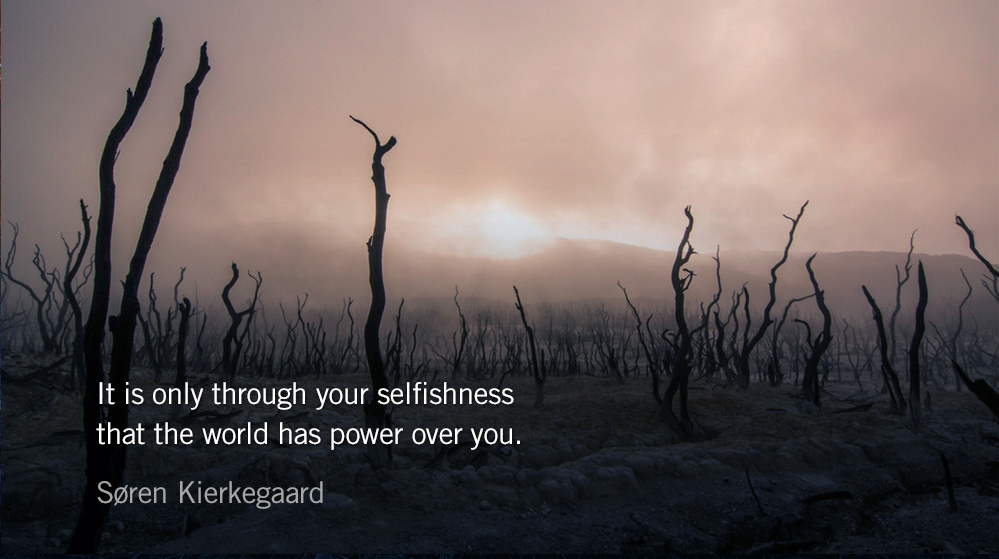The terrible thing, the almost impossible thing, is to hand over your whole self—all your wishes and precautions—to Christ.
―C.S. Lewis
Lenten Reflection: Shattering Selfishness
The Park Forum
At some point we become seduced into believing our life, dreams, and work are the most significant and complex things going in the world. Though we would never admit such things, it’s only a matter of time before this belief yields a near-overwhelming concern that God cannot handle things so complicated without our guidance.
Prayer becomes dominated by our efforts to grasp for control and our insatiable longing for success. With each circumstance beyond our control we resolve ourselves to refocus—not realizing this only deepens our commitment to ourselves. Søren Kierkegaard warns:
It is the Spirit who gives life. The life-giving Spirit is not a direct heightening of our natural powers—what blasphemy! How horrible to understand the Spirit in this way!
Christianity teaches that you must die. Your power must be dismantled. The life-giving Spirit—that is the invitation. Who would not willingly take hold of it? But die first—there’s the rub!
Each of us can go along, dedicating our lives to pursuing our dreams or fleeing our failures—both will catch up and crush us. The invitation of Christ is to abandon ourselves—to dispense with our successes and aspirations as well as our failures and shortcomings—for the transcendent love and grace of God. Kierkegaard concludes:
You must first die to every earthly hope, to every merely human confidence. You must die to your selfishness, and to the world, because it is only through your selfishness that the world has power over you.
What, exactly, does it mean to die to yourself? It is more than not seeing your wish fulfilled or to be deprived of the one that is dearest to you. True, this is painful enough, and selfishness is wounded. But it does not follow that you are dying. No, but personally to shatter your own fulfilled desire, personally to deprive yourself of the dearly desired one who is now your own: this is what it means to wound selfishness at the root.
Christianity is not what we are all too eager to make it. Christianity waits before it applies its remedy. This is Christianity’s severity. It demands a great sacrifice, one which we often despair of making and can only later see why it was necessary to hold out and wait.
Prayer: A Reading
Then, speaking to all, he said, “If anyone wants to be a follower of mine, let him renounce himself and take up his cross everyday and follow me.” — Luke 9:23
– From The Divine Hours: Prayers for Springtime by Phyllis Tickle.
Full prayer available online and in print.
Today’s Reading
Exodus 28 (Listen – 5:54)
John 7 (Listen – 5:53)
This Weekend’s Readings
Exodus 29 (Listen – 6:23) John 8 (Listen – 7:33)
Exodus 30 (Listen – 5:06) John 9 (Listen – 4:56)






